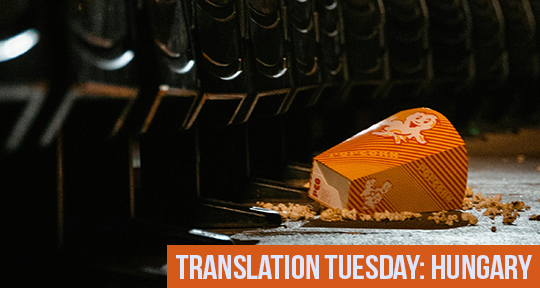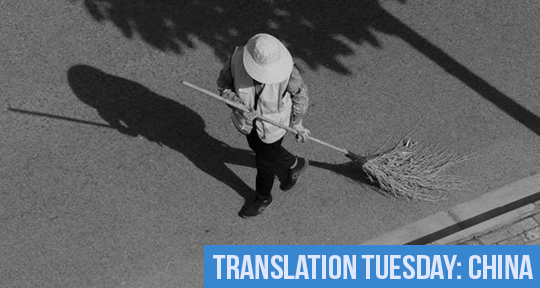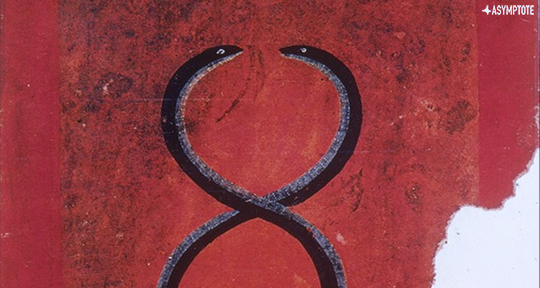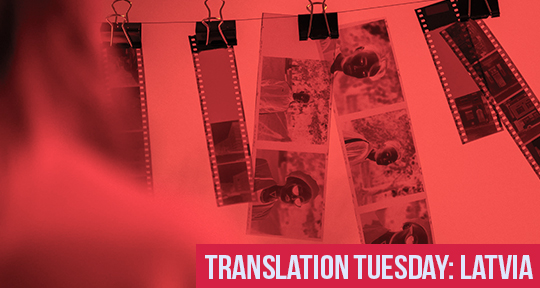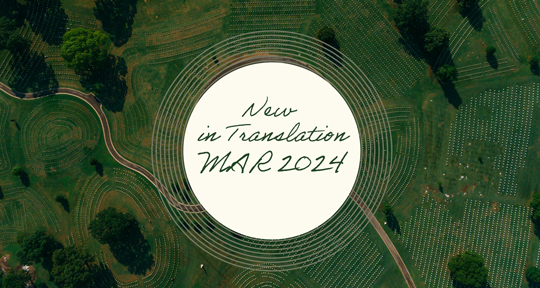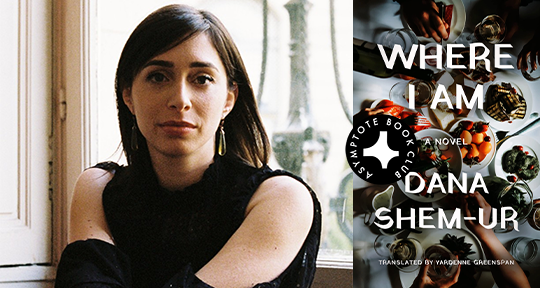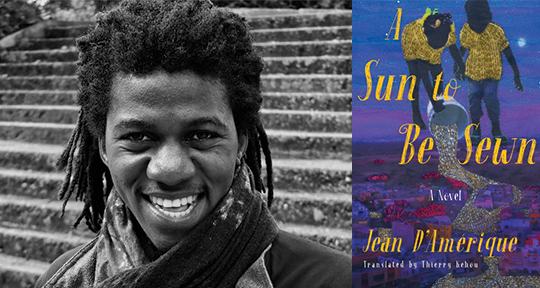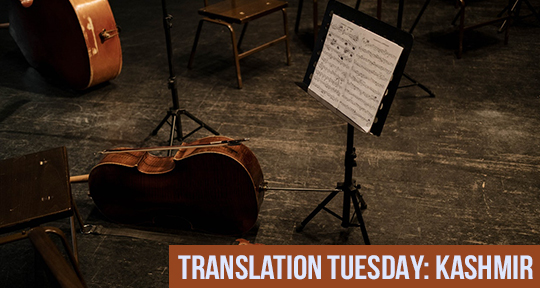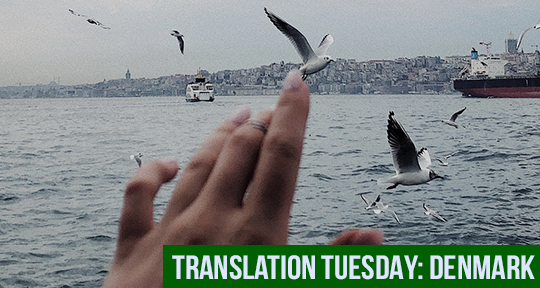For this week’s Translation Tuesday, we bring you a captivating short piece by Anita Harag, translated from the Hungarian by Walter Burgess and Marietta Morry. Although our narrator is immersed in the bliss of romance, she finds herself relentlessly questioning the foundation of her happiness. Does her partner truly love her, though he appears to be drawn to other women? Does she genuinely love him in return? More fundamentally, how can she even be certain of her own feelings? Her efforts to impose a logical structure on the messy, unpredictable nature of love disrupt the lushly intimate moments she shares with her lover. With its playful linguistic twists and staccato rhythms, “I Wonder Whether” masterfully captures the sensation of being both within and without, suffused with pleasure and unease.
His hands are warm, my thighs cold; I’m chilly. It’s autumn, the AC is on. The cinema is full, I’m sitting on the aisle; the cool air is blowing on me. He asks me whether we should switch seats. I like to sit on the aisle; I don’t want to switch. I would like his palm to be bigger, to warm a bigger area of my cold thighs. I like it when he doesn’t only touch my thigh, but my shoulder and my behind, too. When he takes my hand on the street, in a store or on the bus. He takes my hand anywhere and at any time. Mine is cold; he warms it. His is always warm, mine always cold. At the bus stop he breathes on my neck, so that I won’t be cold. Women stare at him. When I look at them; they turn their eyes away.
There are handsome men. This sentence is declarative. “Handsome” is the adjective attached to men. Not to all men, that would be “men are handsome”. Not all men are handsome; for me only the ones with prominent noses and muscular calves. In this I differ from my girlfriend, who likes men with strong arms and blue eyes. Those are also handsome; yet I don’t like them. I should say: I like some men, and some I don’t. The ones I don’t like, my girlfriend might. It’s also possible that we both like the same man, with blue eyes and muscular calves; that’s a problem. Fortunately, my girlfriend doesn’t like men with prominent noses. They repel her; I think the reason for this is to make sure we won’t end up liking the same man, even by accident. Sometimes, I find a man with blue eyes and strong arms attractive. That makes me feel bad, and I try to find fault with him. Some of them can look at me with those blue eyes and make me forget to speak. Him, too, he hasn’t got a prominent nose nor muscular calves, yet I like him. He likes women with brown hair and brown eyes, like me. He also likes women with green or blue eyes, with large or small breasts. He finds something pretty in each of them. I can see myself falling in love with several women at the same time, he says. This is a declarative sentence. It doesn’t contain “perhaps” nor “maybe”, nor anything conditional. “Perhaps” and “maybe” are modifiers expressing uncertainty and possibility. Perhaps I could fall in love with several women, at the same time.

